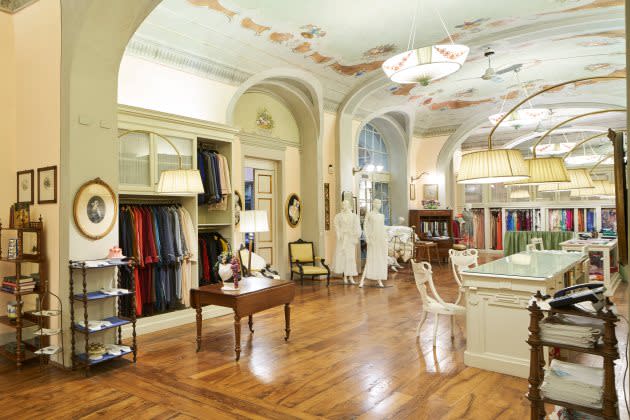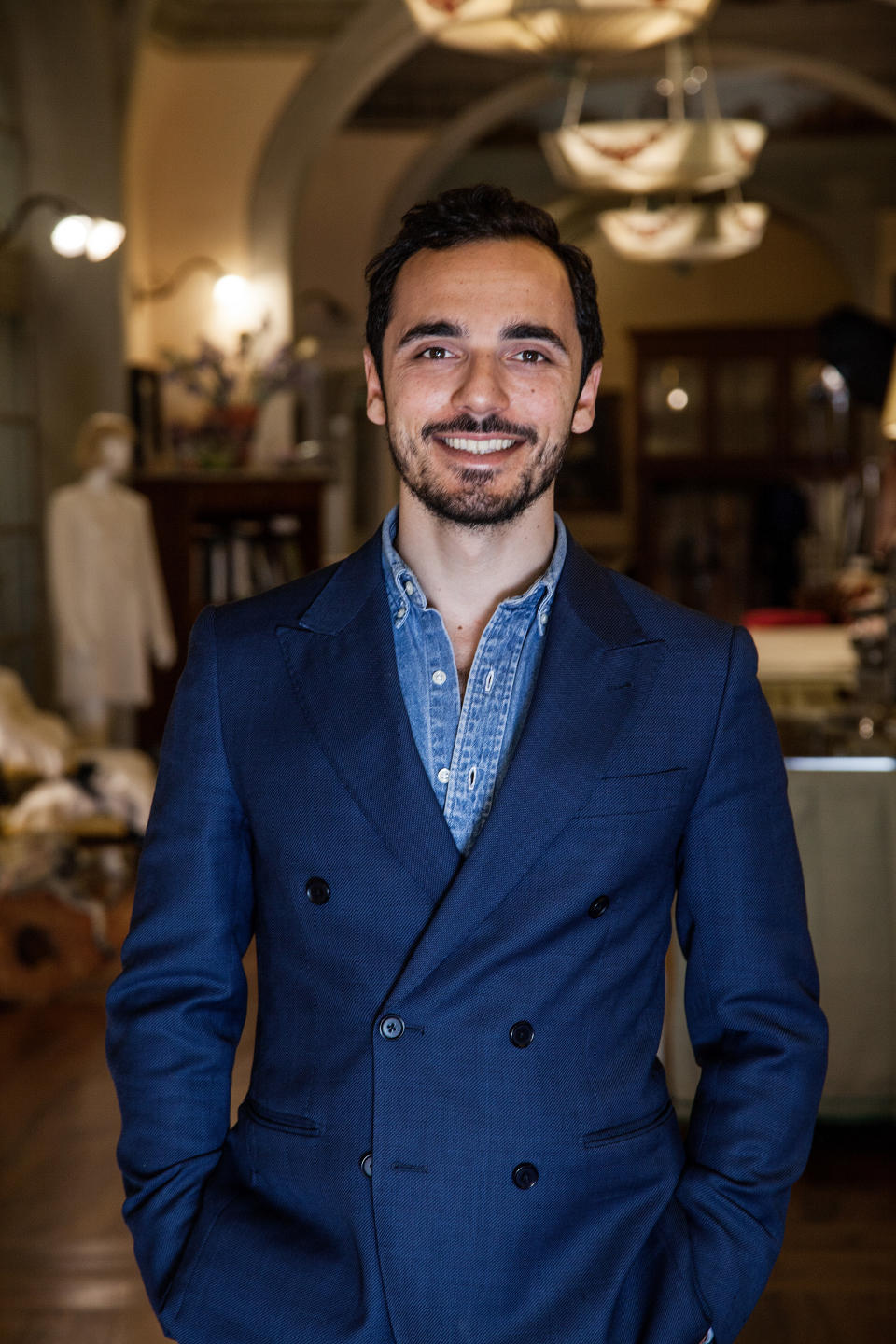Loretta Caponi Expands Home Collection, Business in U.S.

FLORENCE — The Loretta Caponi store here is hard to miss — both because there’s nothing quite like it, with the most unique hand-embroidered linens depicting everything from hot air balloons to toy trains or faithful reproductions of Tuscan sceneries, and because it’s been a prized stop-off in the city for generations.
Located a few steps away from central Via Tornabuoni in the beautiful frescoed 13th-century Palazzo Aldobrandini Di Lippo, which the Caponi family restored, the store includes an atelier and houses all of the brand’s collections, which span home, men’s and women’s ready-to-wear, loungewear and innerwear and, since 2019, a delightful children’s corner.
More from WWD
Sales have doubled in the past two years and the brand has been expanding in the U.S., its main market. It is also accelerating the wholesale distribution of its home line with the opening of a shop-in-shop at Harrods in January, the brand’s expansion on Net-a-porter and its arrival on Abask.com, a platform dedicated to design and interior decoration launched by Tom Chapman, the cofounder of Matchesfashion.
Last week, Loretta Caponi launched a new website and e-commerce platform.
“We’ve seen a 25 percent growth year-on-year since 2019,” said Guido Conti Caponi, the grandson of the late Loretta Caponi. He has been helming the company and driving the internationalization of the brand, while his mother Lucia has been in charge of the designs. “Her embroideries are unbeatable,” he said proudly.
While retail accounted for 60 percent of sales in 2019, through the stores in Florence and in Tuscany’s luxury beach resort Forte dei Marmi, Conti Caponi has been changing that balance, growing wholesale to represent 60 percent of sales. The online channel accounts for 10 percent of revenues.
Over the years, the brand has catered to royal families from Belgium to England as well as the Kennedys, the Rockefellers, the Rothschilds, the Gettys and celebrities including Sting, Madonna and Jane Fonda. Loretta Caponi stood out with the use of cotton, linen and silk at a time when the innerwear category was defined by synthetics and nylon, opening her first shop in 1967.
In the current frescoed shop, decorated with antique furniture, customers can browse the vast selection of precious fabrics and even design their own pieces. The company has more than 22,000 archival embroidery designs that run the gamut, from penguins to sea urchins or chestnuts, to name just a few, and that can be placed on tablecloths, towels, sheets, pillows and throw blankets. Embroideries can also be made based on photos or landscape views. Tablecloths are usually made to measure and can retail at between 5,000 and 6,000 euros.
Retail sales total 5 million euros.
One of the brand’s staples is the long “Fiocchini [small bows]” nightgown, inspired by an original piece of the early 1900s — which continues to be a bestseller. Loretta Caponi was a pioneer in rendering innerwear garments that could be worn outside the house — and the bed. Case in point: the brand’s “Loretta” model, with a smock embroidery and neck ruffles. And she introduced innovative color combinations in innerwear, where pastel hues or tone-on-tone ruled before.

Loretta and Lucia Caponi worked together for more than 30 years and their use of color is outstanding — as seen in a tablecloth that blends 100 differently colored threads. “My mother inherited the artistic vein of her father, who was an artist and surrounded himself with painters, and the entrepreneurial spirit of my grandmother,” Conti Caponi said.
The brand has also launched a bridalwear collection for spring 2023.
After the COVID-19 restrictions, Conti Caponi is eager to start traveling again and stage trunk shows around the world, which are key to connect with the brand’s customers — although word of mouth has always been instrumental in the development of its business. Up next, for example, is a trip to Palm Beach, Florida, in March. Conti Caponi is mindful of the privacy of the brand’s customers, but pointed to decorating not only homes but also yachts and castles.
The U.S. represents more than 50 percent of sales, followed by the Middle East and Europe. “Americans show their love for Florence, heritage, craftsmanship and they appreciate history in the respect of tradition and innovation,” Conti Caponi said.
Everything is made in Tuscany and he underscored the goal is to continue to elevate the brand, which is selectively distributed, available at 70 doors worldwide.
The company remains privately owned and Conti Caponi does not see the need at the moment to seek an investor, reinvesting profits into the growth of the brand, with seasonless pieces and no markdowns, he underscored.
The brand has three yearly ready-to-wear drops, while lingerie and the home collections are presented twice a year.
Conti Caponi believes in preserving the brand’s craftsmanship and quality without compromises. “We are not looking at exponentially expanding our customer base, but our goal is to further penetrate this niche. We want to continue to surprise. People are looking for uniqueness.”

Solve the daily Crossword

